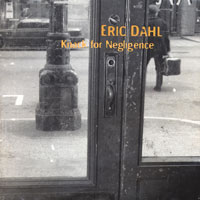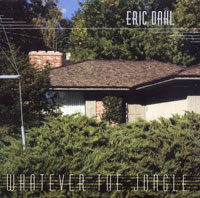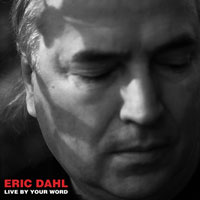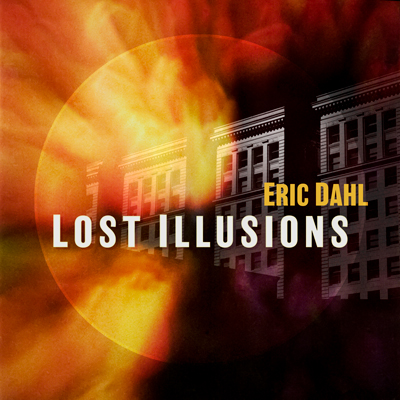Eric Dahl is a writer from Seattle who has released four acclaimed albums of his original songs. He was born in Colville, Washington, in the northeast corner of the state. Within a year the family moved to Kent in western Washington. At that time, was a truck farming town in the Green River Valley south of Seattle with a large cannery and a rail line.

When he was six, the family moved to south Seattle, but Eric’s songs sometimes build on early memories from Kent, including the Libby’s Cannery and the freight trains. Other songs recall situations when he worked as a carpenter in local construction, as a fisherman on a purse seiner, as a boat builder, as a cabinetmaker, and some interesting night jobs in downtown Seattle businesses. The family also had close contact with relatives in the Wenatchee valley east of the Cascade mountains. His grandfather and uncles helped him find work in the orchards and as a beekeeper. The culture in central and eastern Washington was rural — with Paul Harvey on the midday radio news and music from Chet Atkins and Hank Williams rather than Jimi Hendrix and the rockers Eric heard in Seattle. From the Wenatchee Valley, he hiked with his uncles into the high lakes of the Cascades from an early age.

In his family household, music was definitely valued. His father loved the music of the 40's. He played the saxophone and made sure all the children had piano lessons or learned to play other instruments. Eric learned to construct chords on the piano, which turned out to be important when he got his first guitar and started writing songs. He was already writing poetry and stories, so writing songs seemed like second nature. It was also a time in the late sixties when the radio stations were loaded with good material. With his transistor radio he listened to a local late-night country station and the larger Seattle stations and learned that storytelling was central. He grasped that a song could be any kind of narrative. He created a handful of songs of his own but had no intention of playing them for anyone. On the radio and in the record stores he also discovered the storytelling of Bob Dylan, Eric Burdon, and Seattle’s own Jimi Hendrix.
During his first year of college at Whitman in Walla Walla, there were two significant influences on his writing. James Holmstrand was a visiting professor and beat poet, the real thing in terms of knowing that branch of contemporary creativity. He outlined the connections from William Carlos Williams to Ginsberg and especially to the poems of Gary Snyder. Holmstrand took an interest in Eric’s poetry and gave honest, challenging feedback. He also opened routes into the world of his own literary contacts, other writers and editors, and conveyed a sense of the promise and diversity of emerging poetry in the region.
The other influence at Whitman was Thomas Howells, a senior literary scholar from the University of Chicago who taught at Whitman for decades. With him, Eric studied classical literature in translation and major works of the European Renaissance. It was a fantastic grounding in the humanities.
At the end of his first year, Eric was awarded Whitman’s literary prize for his poetry and critical writing. He had already decided not to return, so he tried to give back the prize, but Professor Howells explained that was not how it worked. The prize was in recognition of what he had already accomplished.
Eric returned to Seattle and studied at the University of Washington (UW), publishing poetry in Poetry Northwest and other journals. He continued to write new songs without performing them anywhere. Although he was recognized for poetry and critical studies, almost nobody knew that he also wrote songs. After three years at the University of Washington, he received a major international scholarship to study in England, but not for songs. That was something he did separately.
Eric had several mentors at UW. Slavicist Jack Haney introduced him to Indo European linguistic history and the earliest European poetry, and they translated the Tale of Igor together. He also studied english medieval literature with David Fowler, and his critical writing was influenced most by Robert Stevick. He studied Irish and English history with Giovanni Costigan who would visit him later at Oxford. He studied contemporary poetry with Elizabeth Bishop and benefited from her insights about observation and poetic form. He shared and discussed his poetry with Milton scholar and poet Joan Webber, who sternly told him to read more widely.
Throughout this time Eric participated in creative writing seminars and readings. He studied with David Wagoner and published in Poetry Northwest. He also studied modern European theatre with drama critic Otto Reinhart. His deepening interest in theater affected his songwriting. He wrote several songs at that time with richer characterization and speaking parts, particularly involving dialogue. During this time, he also formulated the concept of “productive procrastination.” If he lost interest in critical writing or academic study, he would just walk away, but instead of doing something pointless to avoid this work, he would instead turn his full attention to writing songs. That was partly how he created about 20 more songs by the time he completed his undergraduate degree at UW.

Next, he studied in England for three years. At Oxford, he studied English Literature within the traditional tutorial system but also did research projects at the British Library and the BBC Library. He wrote poetry and participated in readings with other poets. In his second year, he was awarded the Isis Poetry Prize. His tutors at St Peter’s college were Robert Burchfield (editor of the OED) and Francis Warner, poet, playright and Platonist. He also met a number of major literary figures while at Oxford, including the actor Richard Burton, the American critic and literary biographer Richard Ellman, and poets Ted Hughes and Seamus Heaney.
After he completed his Oxford exams, Eric returned to Seattle and stayed out of libraries for a year. He worked as a boat builder and focused on singing and writing songs again. It was a fertile creative time. He also began recording his songs with a friend’s cassette recorder and building draft album-length collections with titles like Red Gold, Northern Wind, or Stardust Tavern, depending on what part of his history or memories he was exploring.
During that time, two friends insisted that he should spend the time necessary to produce and promote his music. He had known Bayard Johnson since they were both six. Bayard became a Hollywood screenwriter and invited Eric to come there and work with him. When Bayard learned about the original songs, he immediately became an advocate and connected Eric to his friends in that world. On a dare, he booked Eric into the Santa Monica Improv, which at that time had a music venue with an “unknown artist” night. Eric sang in front of a crowd there as a very unknown artist—it was his very first time singing live on stage. He took a relaxed approach. He would stop and explain that he couldn’t remember parts of his songs but sketched in the missing part of the story without his guitar. The audience was curious and tolerant. Bayard told him later that one of the performers in the audience “copped your act” and would pretend that he could not remember his songs. Los Angeles can be inspiring in strange ways.
The other ally was Emile Wilson, who studied with Eric at Oxford and was also originally from Seattle. He booked time for Eric in a Seattle recording studio and insisted that he put down some tracks so that he could learn about professional recording technology and how it can affect a song. Listening to studio mix tapes of his songs with Emile was an important and inspiring lesson.
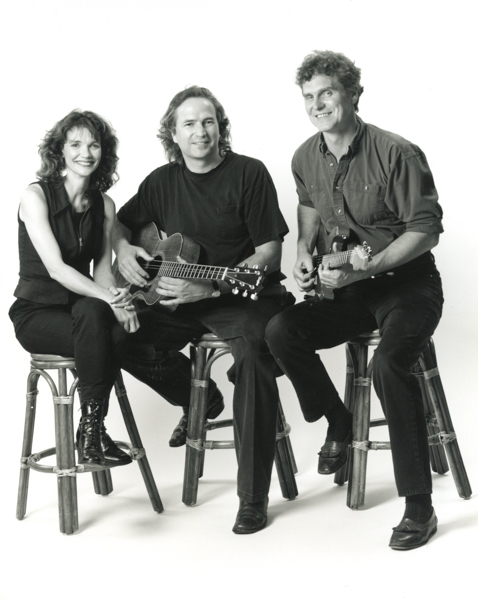
While at the University of Washington writing a dissertation about medieval manuscript variants, Eric found his way to the Seattle studio of video artist John Hawk and produced his first CD, Knack for Negligence. Instead of recording the songs he had already written, Eric created a new collection, writing one new song each day for ten days. On the tenth day, he was exhausted and had no idea what he would write. Then, sitting with his guitar, he heard a terrible news announcement about Kurt Cobain’s death. He wrote “Untitled for Kurt Cobain” that morning and only sang it once after that, when he recorded it with John Hawk a few days later for the new collection.
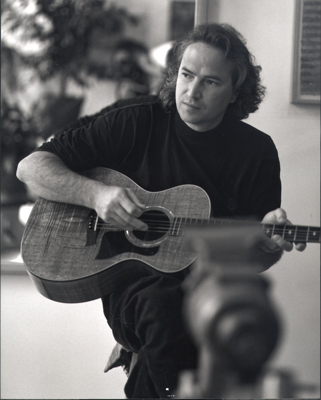
The Seattle music critics liked Knack for Negligence and wrote good things. Most said they had no idea who Eric was. For example, Chris Nickson of The Rocket wrote: “I’ve never heard of him either, but Eric Dahl has turned in one of the best CDs by a local singer/songwriter that I’ve heard in a long time. The music ranges from acoustic neo-rockabilly to the thoughtful and introspective. He also has a killer way with a line. “Smells like a house to make a poor fly rich,” or “I went to see the Sonics ‘cause I had a lotta money,” not at all shabby. Wish I’d written them. Helped by John Hawk on guitar, a sort of Mark Knopfler minus the noodly bits, this is a class act all the way.”
The CD was also praised for having imagery and stories from both sides of the state: the rural wheat and orchard lands to the east and the blurry haze of the urban Puget Sound region. He was now performing his songs in bars and clubs throughout the Northwest with John Hawk and Louisiana singer Terry Martin.
When a chance came to work in Austin, it made sense to move there because it had such a vibrant live music scene, a growing number of singer-songwriter/Americana venues, and a large pool of musicians for studio work. Austin impacted his songwriting in style, content and the number of new songs originating there. In just three years, he wrote about 30 new songs, most of them directly about people and situations in Texas. He was completing new songs for each performance in the local clubs and recorded the tracks in a flurry as they were created. The next CD, Whatever the Jungle, combined the energy and experience of Austin drummer Ernie Durawa and his musical allies in this vibrant scene. The same album included West Coast songs recorded with John Hawk at the sound studios of Calarts in Valencia.
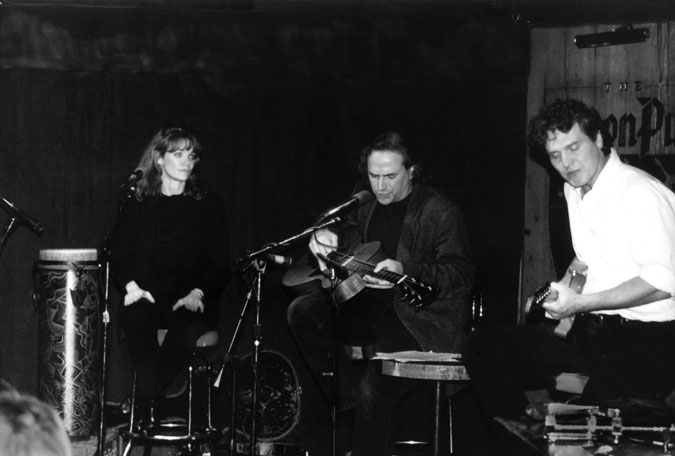
After three years of intense exploration, Eric left Austin for a chance to work with friends building academic programs at the University of Georgia (UGA) in Athens. At UGA, he worked for a decade on three projects—building a medical education program, a new school of engineering, and a new college of public health. After that, he served as an associate dean and professor in the UGA College of Public Health doing everything possible to help the program grow and thrive with positive social and health system outcomes. As always, he managed to continue singing and developing his songs.
When he left Austin for Athens, Eric had about twenty more Texas songs that were recorded but never mixed. The next Texas CD, Live by Your Word, was mixed several years later, beautifully, in Athens by John Keane. It was released in 2011. A final Texas album, Three Pawn Shops, was mixed during Covid Year 1. It brings together diverse sessions recorded in four different studios and was completed with the help of Mark Maxwell at Maxwell Sound in Athens. It was released in January, 2022. Eric finally had time to complete this project because he left UGA for the “job free” status that now allows him to focus again on songwriting and poetry.
All the songs from Eric’s first four albums (one from Seattle and three mainly from Texas) have been made available for listening free on his website (ericdahlmusic.com). They can also be heard on multiple streaming platforms, and on Bandcamp (https:\\ericdahlmusic.bandcamp.com).
His 2023 album Lost Illusions contains 10 songs that return to Eric’s roots in the Pacific Northwest as a prequal to his first published album, Knack for Negligence.
All Songs by Eric Dahl © ℗ 1995 - 2023 | Yew Lane Music (BMI) All Rights Reserved

